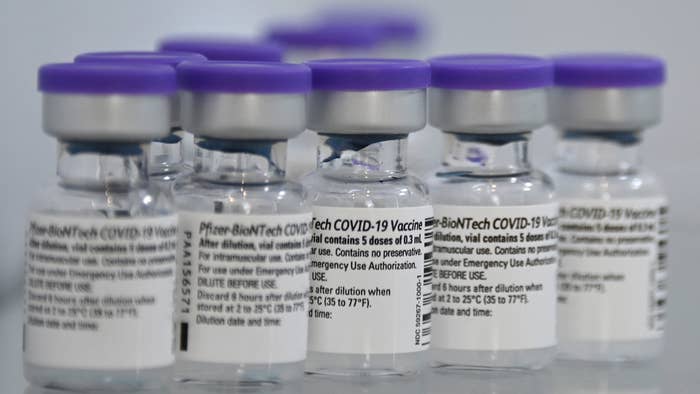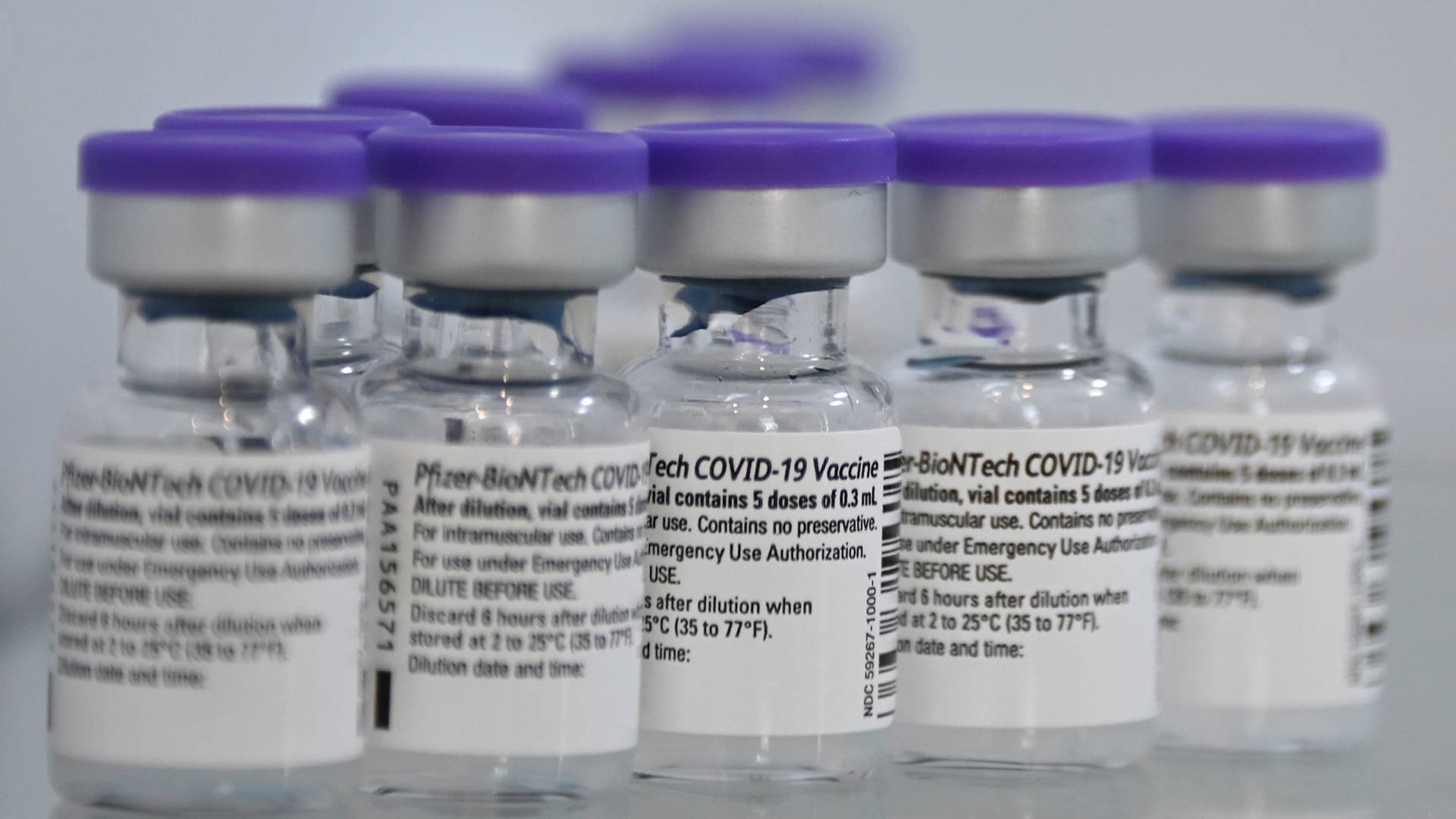
In a new study published by researchers on Thursday, it has been suggested Pfizer and BioNTech's vaccine will protect against variants of COVID-19.
The preliminary study, which has not yet been reviewed by peers, focuses on whether recently detected contagious variants of the virus might negate the vaccine's impact. "Rapidly spreading variants of SARS-CoV-2 that have arisen in the United Kingdom and South Africa share the spike N501Y substitution," reads the study, which ultimately concludes that the vaccine should be effective against some mutations to the coronavirus without sacrificing its effectiveness.
The variants were first detected in the United Kingdom and South Africa, but they have both since been reported elsewhere, including in the United States. N501Y is an alteration on one portion of the spike protein coating the virus, but thankfully the majority of vaccines currently being utilized across the world should be able to detect said spike protein and fight against it. The study reports that there was "no reduction in neutralization activity against the virus" that has the same mutation, scientists at Pfizer and the University of Texas Medical Branch claim.
"These data don’t suggest a need for a change, but the mutations are hitting close enough to home that we need to be prepared," Pfizer's vice president and chief scientific officer of viral vaccines Philip Dormitzer told STAT. So far, researchers have tested the Pfizer vaccine against at least 12 COVID-19 mutations, and there has been no immediate cause for concern so far. "I don’t want to be a Pollyanna here… we have to test each one as they come, but so far so good," added Dormitzer.
Experts have suggested that while mutations might reduce how well vaccines could work, they shouldn't render them completely ineffective. The virus could pick up more mutations as time goes on, but vaccines would be tweaked to match such genetic changes. "This is good news," professor Stephen Evans of the London School of Hygiene and Tropical Medicine told BBC, "But it does not give us total confidence that the Pfizer (or other) vaccines will definitely give protection."

